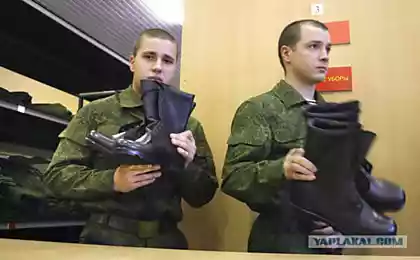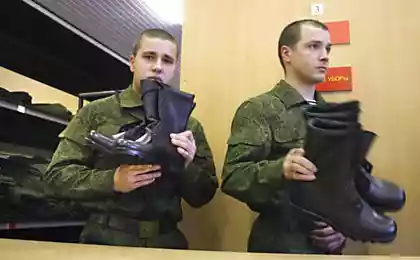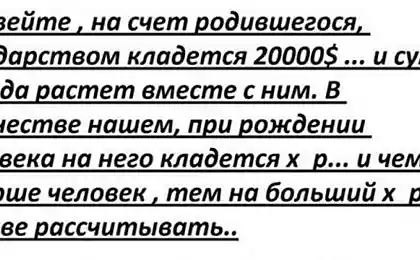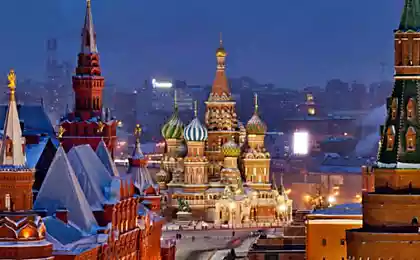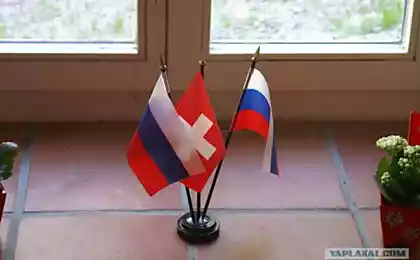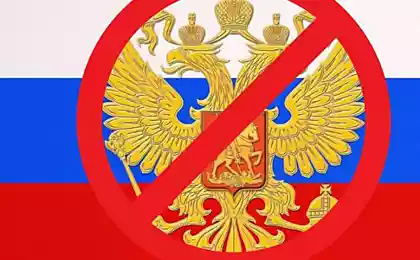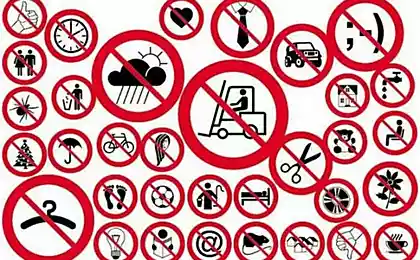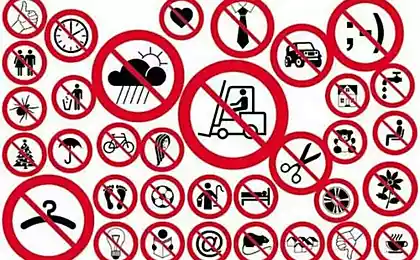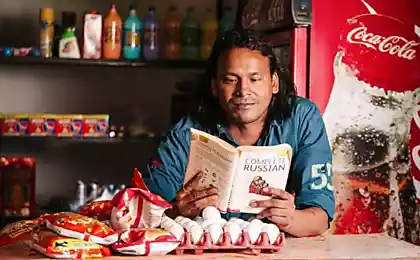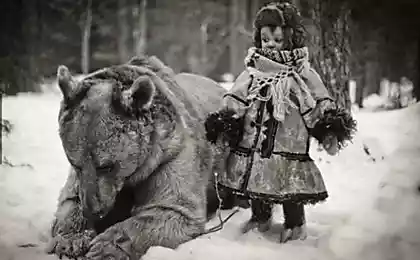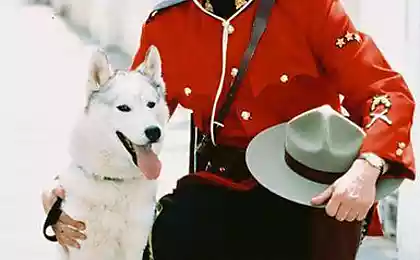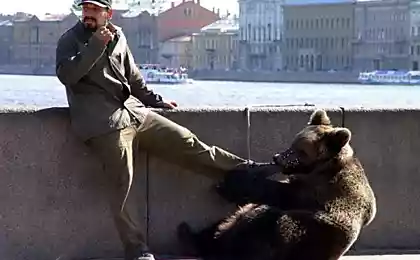1157
Russian words are known throughout the world
Some Russian words known throughout the world. They do not translate. Either because of the fact that the word simply can not be translated, either because the translation is redundant - a phenomenon too well known in this form.
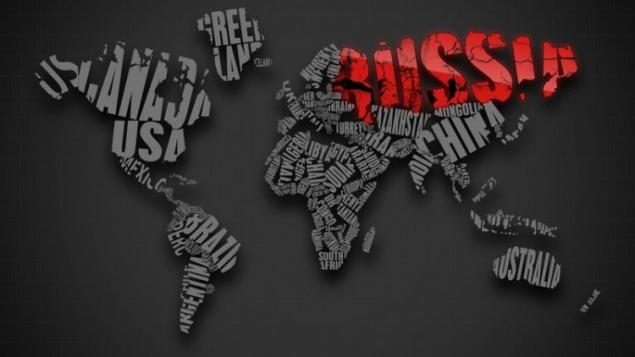
1. KALASHNIKOV
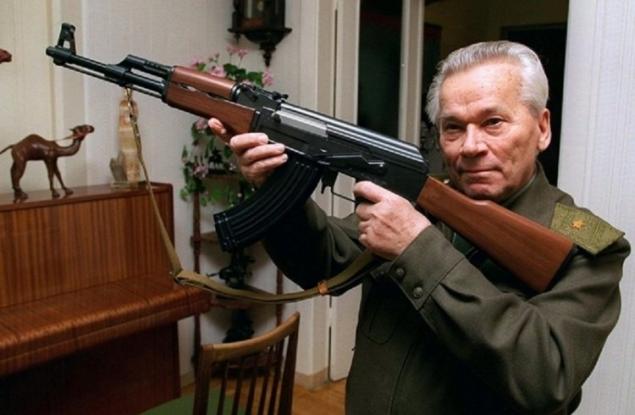
Last Russian gunsmith, who created one of the most popular machines in the world, became a household word.
AK-47 - a living legend. He won first place in the list of the most significant inventions of the XX century version of the French journal "Liberation" and the 4th place in the list of "50 articles that changed the world" according to the magazine Playboy, losing computer Apple Macintosh, birth control pills and VCR Sony Betamax. < br />
In the name of "Kalash" in Africa called children automaton depicted on the national flag four countries (Mozambique, Zimbabwe, Burkina Faso, East Timor) and the coat of arms of Mozambique.
2. MATRYOSHKA
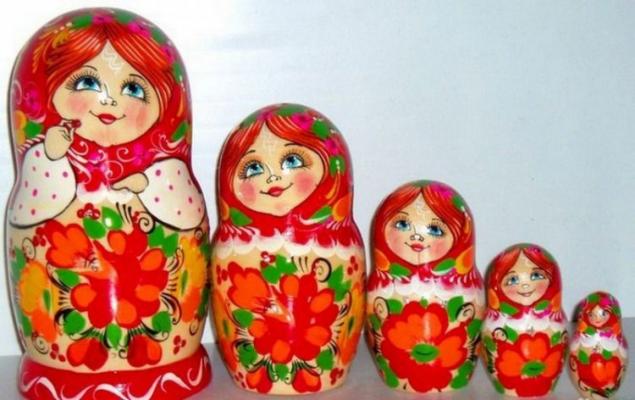
Despite the fact that she matryoshka - the invention is not Russian, and Japanese, Russian matryoshka it became a world-famous brand, and the word itself does not require translation.
"Matryoshka" comes from the name of Matrona, which dates back to PIE word mater («the mother"). Matryoshka still inspires the world's top designers. Apple releases cases and speakers for the iPad in the form of Russian national doll, American designer Rachel Csaba Sharfshteyn releases piggy Bushka (from the word "grandmother") in the form of dolls, and the English manufacturer of table lamps Mathmos - lamp Babushka with the same recognizable shape.
4. SPUTNIK
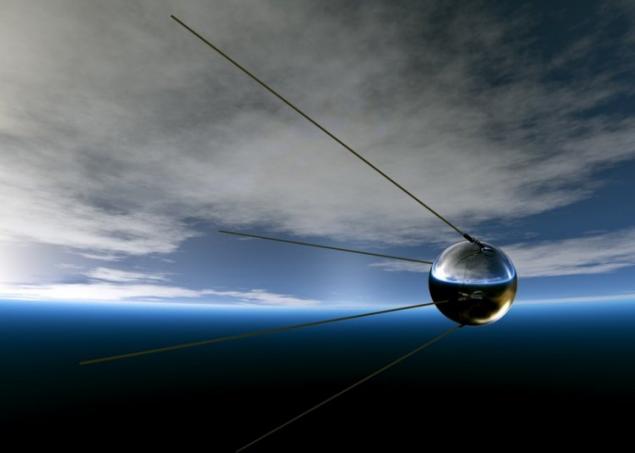
Several Russian words become international after the launch of the Soviet space program: Lunokhod, Sputnik, Soyuz, Mir and Vostok. It was unique in the history of the twentieth century a powerful trendsetting from the Soviet Union. Unusual for foreigners transliterated words appeared on the covers of magazines, read them on television and heard on the radio. Western people it was difficult to understand the difference in the words "The World» - peace - world and "East» - orient - east, but nothing coped.
5. PERESTROIKA
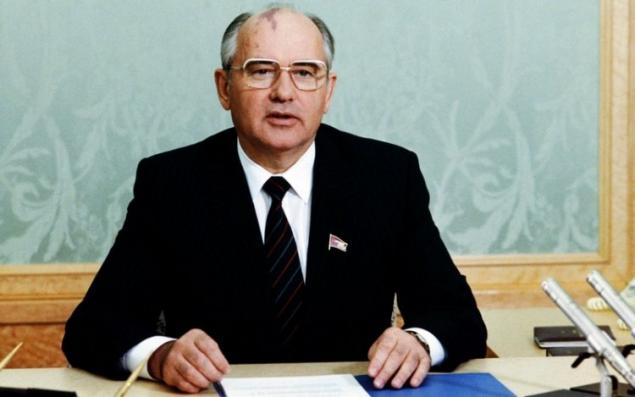
Outlandish Russian word "perestroika" became a foreign vocabulary in the late 80's - early 90-ies. For the first time this term was voiced by Mikhail Gorbachev at a meeting with the Leningrad Party activists Party gorkrma 15-17 May 1985. Gorby then said: "Apparently, comrades, we all need to be reconstructed. Everyone. " The wording was picked up first by Soviet, and then the Western media.
What led PERESTROIKA, we all know ...
6. GULAG
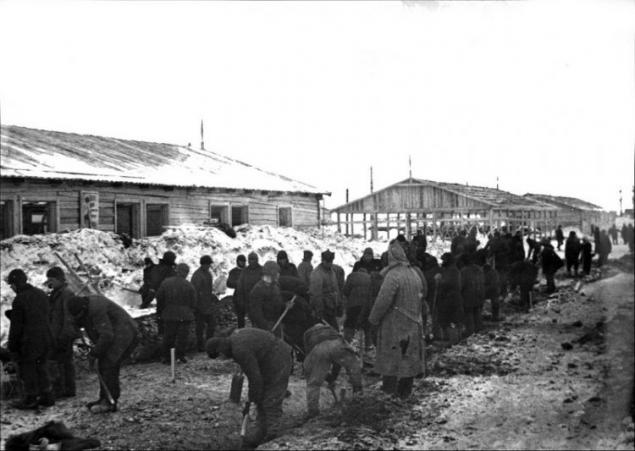
The first Russian "prison" called de Custine in his book "Russia in 1839". He wrote: "No matter how immense this empire, it is nothing like a prison, the key to which is kept by the Emperor ..." According to Herzen, "writing Custine visited all hands", the image of Russia as a "prison of nations" came into the Russian language as an aphorism.
In XX century, cherished Western propaganda is another myth - the "USSR - a prison of nations." This expression knew any foreigner. And sometimes I understand it literally. For example, many US citizens who come to Moscow in the days of the Iron Curtain, asked her to show them the accompanying Soviet GULAG. An opinion that they are not in the Soviet Union less than, say, cinemas.
7. BORSHCH
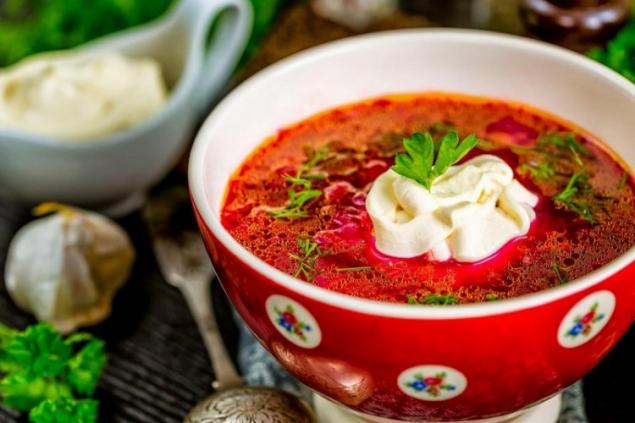
Russian cuisine is known and loved all over the world, and its signature dishes, such as BLYNY, PIROGY, PELMENY, KASHA, KVASS and SMETANA, can be found on the menu of many foreign restaurants. Most, of course, a difficult word for a man of the West - BORSHCH. Borsch has long been a favorite dish of Russian and East European immigrants, and even gave the name of the resort area north of New York, which is now all know as "Borshchov times».
8. DACHA

The first cottages appeared in Russia long before Peter the Great, although still mistakenly believe that this is the first emperor popularized the "garden».
"Dacha" (which means "gift") during the time of Ivan the Terrible was the main currency to pay off the service class, gentry, who was the first Russian kings tried to win over to its side in the confrontation with the influential feudal lords.
I must say that in those days villa darilas not forever, but was given at the time of service. Only Peter I introduced the practice to transfer land in suburban timeless use.
"Second Breath" cottages found in Soviet times, when acquired the status of one of the main fetish of the Soviet man. DACHA - the international word. It is also in French, and English.
9. NA ZDOROVIE
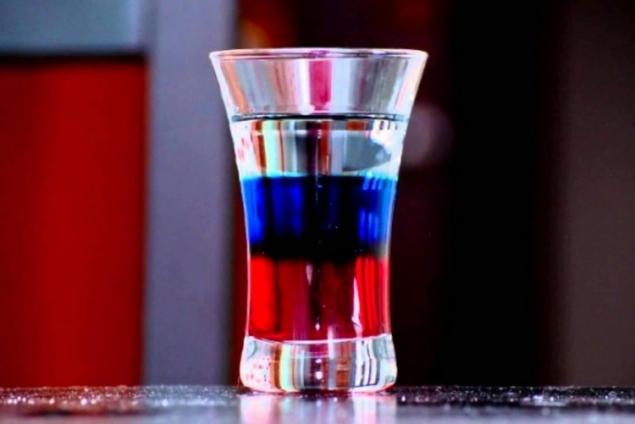
If you have ever taken part in feasts with foreigners, you certainly pay attention to the fact that any of them are no-no and say as a toast: «Na zdorovie!» It is not known exactly when abroad have come to believe that this Figure courtesy is toast, but foreigners say it often during feasts. They do it with confidence and with a hint of self-satisfaction, pride in the outstanding knowledge of Russian traditions.
10. HALIAVA

Word HALIAVA was brought across the border ubiquitous Russian tourists. Today, wanting to bring to the store or shop of Russian buyers, sellers love to show off the word. Interestingly the origin of the word. "Free" used to be called the ankle boot, which was convenient to put vending thing. Simply - to steal, that is to take and do not pay for it money. Do they know about the etymology of the barkers?
11. BABUSHKA
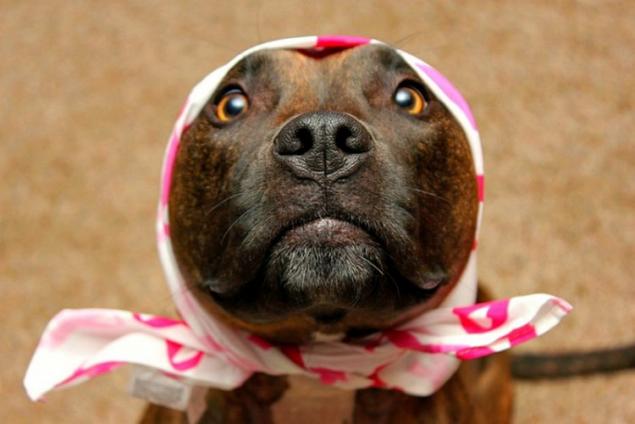
If you look at English-Russian dictionary, you can see there is a word BABUSHKA (value: a usually triangularly folded kerchief for the head; handkerchief, scarf, head scarf). The second meaning of the word - "an elderly Russian woman».
For the first time borrowing "grandmother" of the Russian language was recorded in Webster (Dictionary notes that in English this word is from 1938).
12. COSSACK
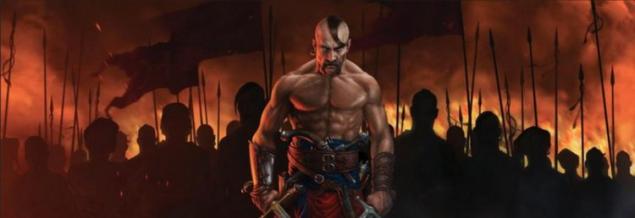
The word "Cossack" in America is associated with Russia since the middle of the XVIII century when Russian administration of Alaska appeared. Europe learned about the Cossacks even earlier, but the most convincing presentation of the Cossacks was May 1, 1814 in Paris, when the town came to Russian side.
If Russian soldiers and officers could not be distinguished from the Prussians and the Austrians (only form), the Cossacks were bearded, in trousers with stripes, just the same as the pictures in the French newspapers. Show Cossacks were good. Admiring a bevy of children running for Russian soldiers. A Parisian man soon began to wear beards "under the Cossacks" and knives on wide belts.
In English, the word is used with COSSACK 1589.
13. SAMIZDAT
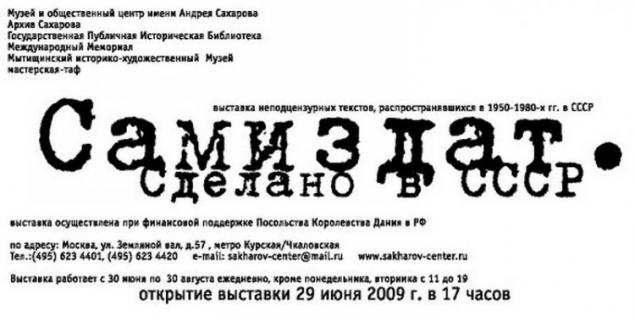
The name "samizdat" appeared in the Soviet people as a natural parody of the title of the Soviet state publishing organizations like "Goskomizdat" and "Politizdat».
The first close in meaning and form of the word "samsebyaizdat" used the poet Nikolai Glazkov: in 1940 he put on the word made them painted and bound typewritten collections of his poems.
In the years 1960-1980 "samizdat" for the Soviet Union became a cult thing. "Self-published" book flowed and abroad, making this the word "floated" into the Western lexicon. Word SAMIZDAT known abroad today. In the United States there are even publishing B & R Samizdat Express.
14. SAMOVAR
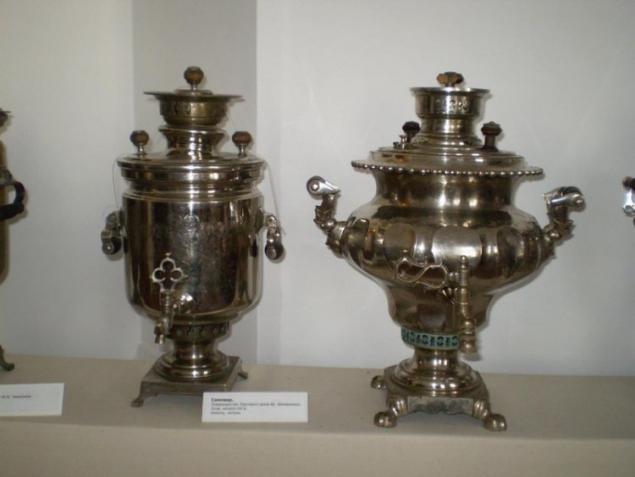
Samovar - a Russian thing in itself. Despite the fact that the first samovars appeared in China, a subject of national pride they have in Russia.
In the 60 years of XVIII century gunsmith Fedor Lisitsyn decided to organize in Tula enterprise for the production of pots and "devices for heating the water." Soon, no fair is held without the participation of the articles of Tula craftsmen. Over time, the Tula samovars became known throughout Russia: in 1829 at the St. Petersburg exhibition Tula samovar was awarded a small silver medal.
Abroad Russian samovars appeared along with the emigrants, and soon became one of the markers of Russian identity abroad (remember the restaurant "Russian Samovar" in New York). During Obama's visit to Russia, Vladimir Putin entertained US President tea from a samovar.
15. TROYKA
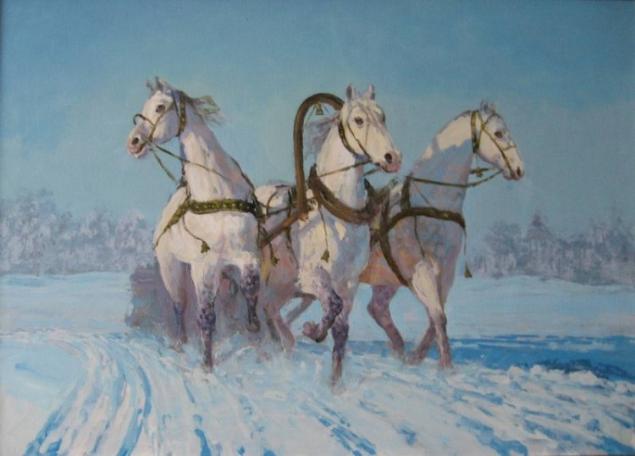
Officially, the trio appeared in Russia in the beginning of the XVIII century, when the harness has been applied troechnaya the royal courier service, but given the long way every Russian innovations, we can assume that the triple was in Russia much earlier.
According to historical legend, the introduction of "our western partners" with the Russian troika was held under Catherine II, when Russia came to the Austrian Emperor Joseph. Empress invited the best coachman and asked if he could drop off guest from St. Petersburg to Moscow in 36 hours. The driver replied in the affirmative, although usually this way pawned two or three days ...
16. TZAR
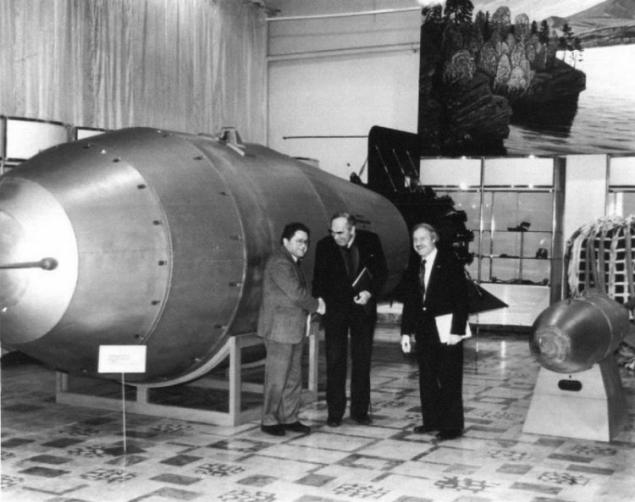
Russian word "king" is transliterated into English in several different ways. For example, TZAR and CZAR. This usually is not translated. Thus, the most powerful Soviet bomb is called in English: TZAR-BOMBA.
Today, as he wrote BBC Russain, «kings" on the American political slang called presidential spetsupolnomochennyh, which the White House requests the head of some sphere, and to coordinate actions of several government departments. Critics call them collectively the "shadow cabinet».
17. KGB
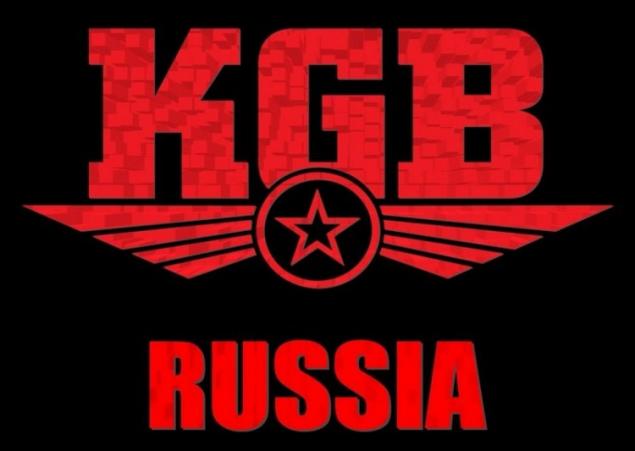
Abbreviation from the KGB Andropov's era and before sunset the Soviet Union was both frightening and fascinating. About the power of the organization known on both sides of the ocean. Developed secret-base and high level of experts of the Soviet KGB become a byword.
In the West during the Soviet Union, many believed that the Soviet Union for each person there is a dossier to the KGB, all apartments are heard, and through the streets of ordinary citizens carried out surveillance. Just as in Orwell's novel "1984».
18. TOVARISCH
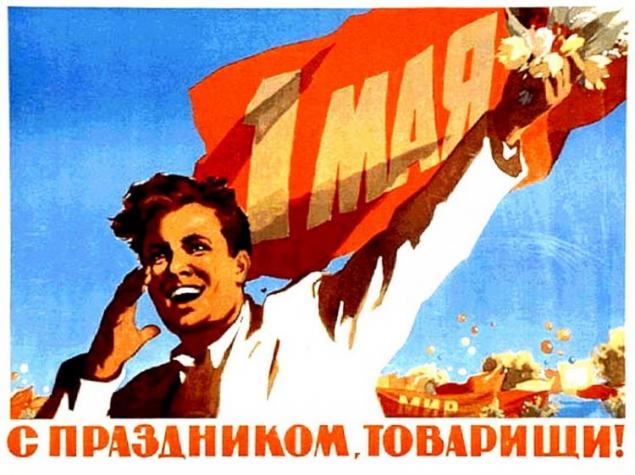
According to one version, the word "friend" called themselves Rus hawker-Ofen, traded in the same goods. According to another, the word comes from the Old Russian "tovar" (military camp). Whatever it was, but originally "comrade" was the concept of enterprise. Only in the Soviet Union the word "comrade" began to call for all citizens - both men and women.
They came to be called as all the Soviet people in the West. For example, in the 1939 film "Ninotchka" Greta Garbo plays a role of "comrade Nina Yakusheva».
19. CHEBURASHKA

Cheburashka - our most international Russian cartoon character. A character invented by Eduard Uspensky, first caused a misunderstanding censors because this obscure pioneers took the animal into their organization. However, after the first series of cartoon Cheburashka it became very popular in the Soviet Union, and even a hero of anecdotes.
In 2001, Cheburashka gained great popularity in Japan. In 2003, at the Tokyo International Fair animations Japanese firm SP International acquired the "Soyuzmultfilm" distribution rights in Japan cartoons about Cheburashka until 2023, and the Japanese television channel TV Tokyo show took place 26 anime series about Cheburashka called Cheburashka Arere.
20. TAIGA

Russia is famous for its forests. And most important of Russian forests - taiga. This term refers to any overseas impenetrable forest. TAIGA word entered and branding. In Austria, our "Niva" sold under the brand Lada Taiga.

1. KALASHNIKOV

Last Russian gunsmith, who created one of the most popular machines in the world, became a household word.
AK-47 - a living legend. He won first place in the list of the most significant inventions of the XX century version of the French journal "Liberation" and the 4th place in the list of "50 articles that changed the world" according to the magazine Playboy, losing computer Apple Macintosh, birth control pills and VCR Sony Betamax. < br />
In the name of "Kalash" in Africa called children automaton depicted on the national flag four countries (Mozambique, Zimbabwe, Burkina Faso, East Timor) and the coat of arms of Mozambique.
2. MATRYOSHKA

Despite the fact that she matryoshka - the invention is not Russian, and Japanese, Russian matryoshka it became a world-famous brand, and the word itself does not require translation.
"Matryoshka" comes from the name of Matrona, which dates back to PIE word mater («the mother"). Matryoshka still inspires the world's top designers. Apple releases cases and speakers for the iPad in the form of Russian national doll, American designer Rachel Csaba Sharfshteyn releases piggy Bushka (from the word "grandmother") in the form of dolls, and the English manufacturer of table lamps Mathmos - lamp Babushka with the same recognizable shape.
4. SPUTNIK

Several Russian words become international after the launch of the Soviet space program: Lunokhod, Sputnik, Soyuz, Mir and Vostok. It was unique in the history of the twentieth century a powerful trendsetting from the Soviet Union. Unusual for foreigners transliterated words appeared on the covers of magazines, read them on television and heard on the radio. Western people it was difficult to understand the difference in the words "The World» - peace - world and "East» - orient - east, but nothing coped.
5. PERESTROIKA

Outlandish Russian word "perestroika" became a foreign vocabulary in the late 80's - early 90-ies. For the first time this term was voiced by Mikhail Gorbachev at a meeting with the Leningrad Party activists Party gorkrma 15-17 May 1985. Gorby then said: "Apparently, comrades, we all need to be reconstructed. Everyone. " The wording was picked up first by Soviet, and then the Western media.
What led PERESTROIKA, we all know ...
6. GULAG

The first Russian "prison" called de Custine in his book "Russia in 1839". He wrote: "No matter how immense this empire, it is nothing like a prison, the key to which is kept by the Emperor ..." According to Herzen, "writing Custine visited all hands", the image of Russia as a "prison of nations" came into the Russian language as an aphorism.
In XX century, cherished Western propaganda is another myth - the "USSR - a prison of nations." This expression knew any foreigner. And sometimes I understand it literally. For example, many US citizens who come to Moscow in the days of the Iron Curtain, asked her to show them the accompanying Soviet GULAG. An opinion that they are not in the Soviet Union less than, say, cinemas.
7. BORSHCH

Russian cuisine is known and loved all over the world, and its signature dishes, such as BLYNY, PIROGY, PELMENY, KASHA, KVASS and SMETANA, can be found on the menu of many foreign restaurants. Most, of course, a difficult word for a man of the West - BORSHCH. Borsch has long been a favorite dish of Russian and East European immigrants, and even gave the name of the resort area north of New York, which is now all know as "Borshchov times».
8. DACHA

The first cottages appeared in Russia long before Peter the Great, although still mistakenly believe that this is the first emperor popularized the "garden».
"Dacha" (which means "gift") during the time of Ivan the Terrible was the main currency to pay off the service class, gentry, who was the first Russian kings tried to win over to its side in the confrontation with the influential feudal lords.
I must say that in those days villa darilas not forever, but was given at the time of service. Only Peter I introduced the practice to transfer land in suburban timeless use.
"Second Breath" cottages found in Soviet times, when acquired the status of one of the main fetish of the Soviet man. DACHA - the international word. It is also in French, and English.
9. NA ZDOROVIE

If you have ever taken part in feasts with foreigners, you certainly pay attention to the fact that any of them are no-no and say as a toast: «Na zdorovie!» It is not known exactly when abroad have come to believe that this Figure courtesy is toast, but foreigners say it often during feasts. They do it with confidence and with a hint of self-satisfaction, pride in the outstanding knowledge of Russian traditions.
10. HALIAVA

Word HALIAVA was brought across the border ubiquitous Russian tourists. Today, wanting to bring to the store or shop of Russian buyers, sellers love to show off the word. Interestingly the origin of the word. "Free" used to be called the ankle boot, which was convenient to put vending thing. Simply - to steal, that is to take and do not pay for it money. Do they know about the etymology of the barkers?
11. BABUSHKA

If you look at English-Russian dictionary, you can see there is a word BABUSHKA (value: a usually triangularly folded kerchief for the head; handkerchief, scarf, head scarf). The second meaning of the word - "an elderly Russian woman».
For the first time borrowing "grandmother" of the Russian language was recorded in Webster (Dictionary notes that in English this word is from 1938).
12. COSSACK

The word "Cossack" in America is associated with Russia since the middle of the XVIII century when Russian administration of Alaska appeared. Europe learned about the Cossacks even earlier, but the most convincing presentation of the Cossacks was May 1, 1814 in Paris, when the town came to Russian side.
If Russian soldiers and officers could not be distinguished from the Prussians and the Austrians (only form), the Cossacks were bearded, in trousers with stripes, just the same as the pictures in the French newspapers. Show Cossacks were good. Admiring a bevy of children running for Russian soldiers. A Parisian man soon began to wear beards "under the Cossacks" and knives on wide belts.
In English, the word is used with COSSACK 1589.
13. SAMIZDAT

The name "samizdat" appeared in the Soviet people as a natural parody of the title of the Soviet state publishing organizations like "Goskomizdat" and "Politizdat».
The first close in meaning and form of the word "samsebyaizdat" used the poet Nikolai Glazkov: in 1940 he put on the word made them painted and bound typewritten collections of his poems.
In the years 1960-1980 "samizdat" for the Soviet Union became a cult thing. "Self-published" book flowed and abroad, making this the word "floated" into the Western lexicon. Word SAMIZDAT known abroad today. In the United States there are even publishing B & R Samizdat Express.
14. SAMOVAR

Samovar - a Russian thing in itself. Despite the fact that the first samovars appeared in China, a subject of national pride they have in Russia.
In the 60 years of XVIII century gunsmith Fedor Lisitsyn decided to organize in Tula enterprise for the production of pots and "devices for heating the water." Soon, no fair is held without the participation of the articles of Tula craftsmen. Over time, the Tula samovars became known throughout Russia: in 1829 at the St. Petersburg exhibition Tula samovar was awarded a small silver medal.
Abroad Russian samovars appeared along with the emigrants, and soon became one of the markers of Russian identity abroad (remember the restaurant "Russian Samovar" in New York). During Obama's visit to Russia, Vladimir Putin entertained US President tea from a samovar.
15. TROYKA

Officially, the trio appeared in Russia in the beginning of the XVIII century, when the harness has been applied troechnaya the royal courier service, but given the long way every Russian innovations, we can assume that the triple was in Russia much earlier.
According to historical legend, the introduction of "our western partners" with the Russian troika was held under Catherine II, when Russia came to the Austrian Emperor Joseph. Empress invited the best coachman and asked if he could drop off guest from St. Petersburg to Moscow in 36 hours. The driver replied in the affirmative, although usually this way pawned two or three days ...
16. TZAR

Russian word "king" is transliterated into English in several different ways. For example, TZAR and CZAR. This usually is not translated. Thus, the most powerful Soviet bomb is called in English: TZAR-BOMBA.
Today, as he wrote BBC Russain, «kings" on the American political slang called presidential spetsupolnomochennyh, which the White House requests the head of some sphere, and to coordinate actions of several government departments. Critics call them collectively the "shadow cabinet».
17. KGB

Abbreviation from the KGB Andropov's era and before sunset the Soviet Union was both frightening and fascinating. About the power of the organization known on both sides of the ocean. Developed secret-base and high level of experts of the Soviet KGB become a byword.
In the West during the Soviet Union, many believed that the Soviet Union for each person there is a dossier to the KGB, all apartments are heard, and through the streets of ordinary citizens carried out surveillance. Just as in Orwell's novel "1984».
18. TOVARISCH

According to one version, the word "friend" called themselves Rus hawker-Ofen, traded in the same goods. According to another, the word comes from the Old Russian "tovar" (military camp). Whatever it was, but originally "comrade" was the concept of enterprise. Only in the Soviet Union the word "comrade" began to call for all citizens - both men and women.
They came to be called as all the Soviet people in the West. For example, in the 1939 film "Ninotchka" Greta Garbo plays a role of "comrade Nina Yakusheva».
19. CHEBURASHKA

Cheburashka - our most international Russian cartoon character. A character invented by Eduard Uspensky, first caused a misunderstanding censors because this obscure pioneers took the animal into their organization. However, after the first series of cartoon Cheburashka it became very popular in the Soviet Union, and even a hero of anecdotes.
In 2001, Cheburashka gained great popularity in Japan. In 2003, at the Tokyo International Fair animations Japanese firm SP International acquired the "Soyuzmultfilm" distribution rights in Japan cartoons about Cheburashka until 2023, and the Japanese television channel TV Tokyo show took place 26 anime series about Cheburashka called Cheburashka Arere.
20. TAIGA

Russia is famous for its forests. And most important of Russian forests - taiga. This term refers to any overseas impenetrable forest. TAIGA word entered and branding. In Austria, our "Niva" sold under the brand Lada Taiga.

